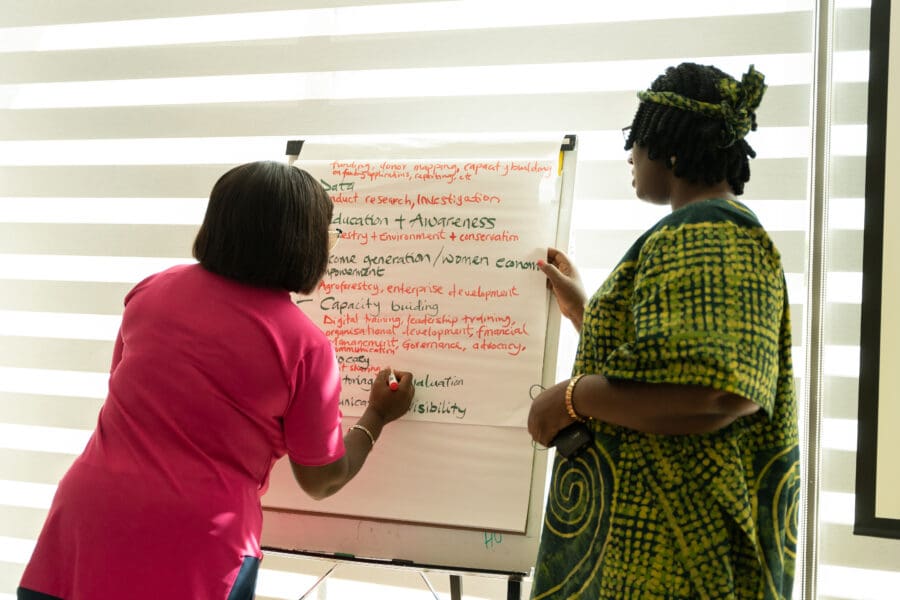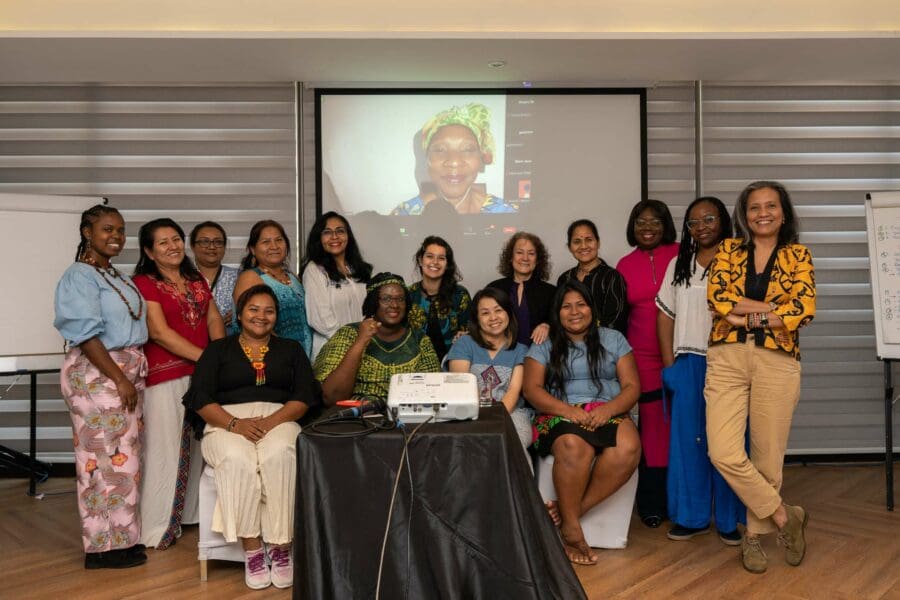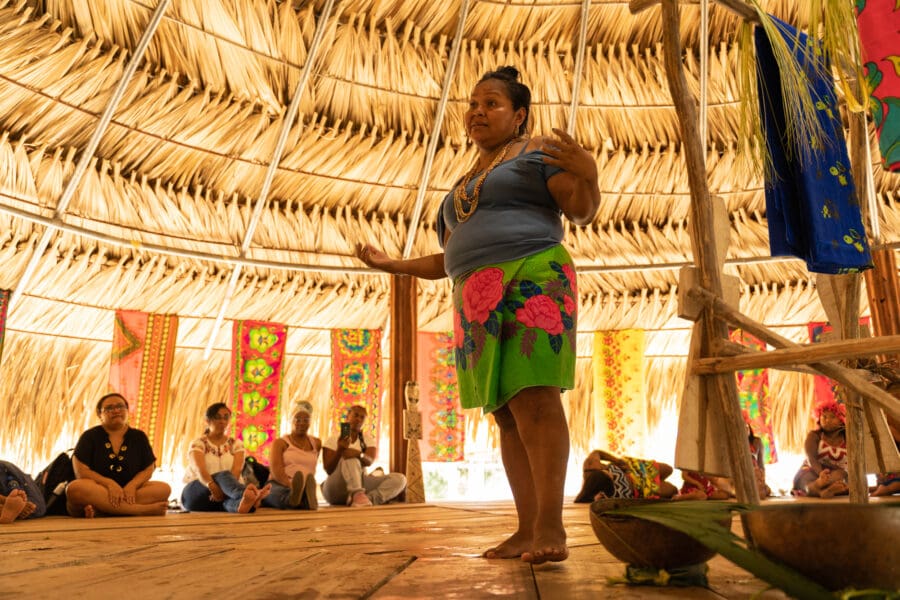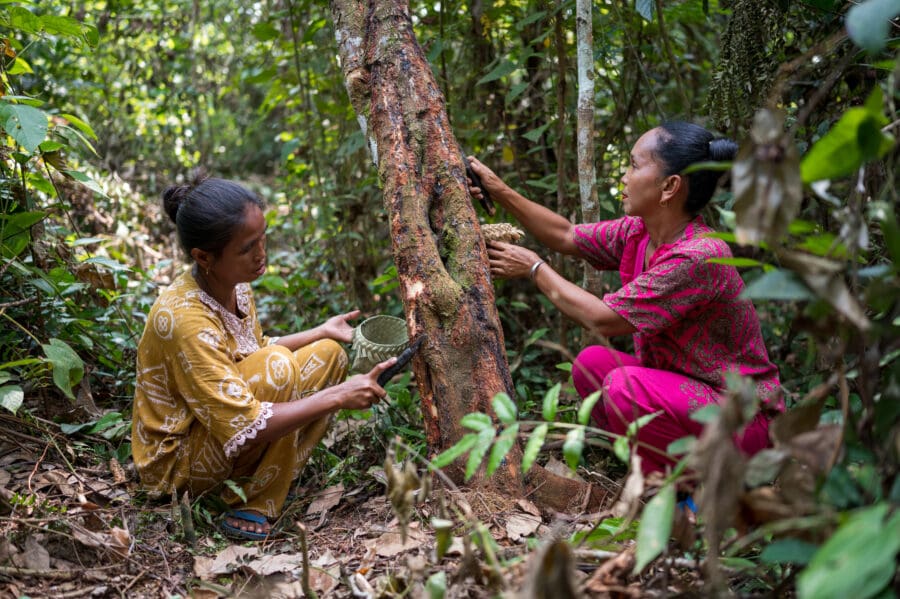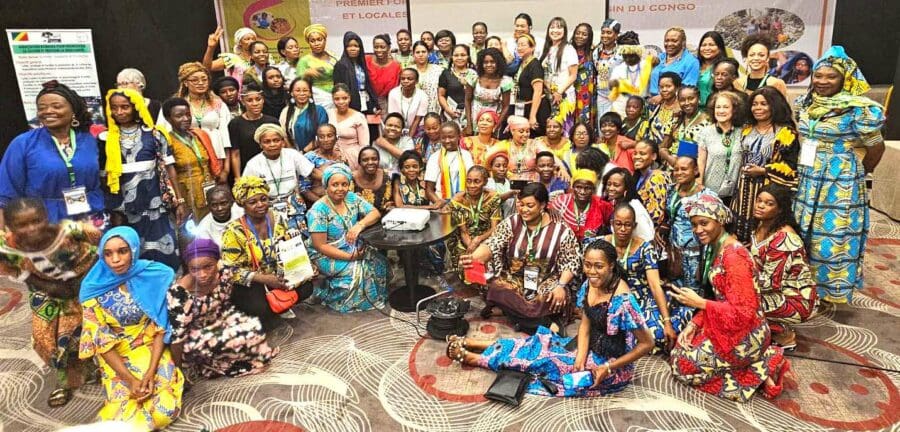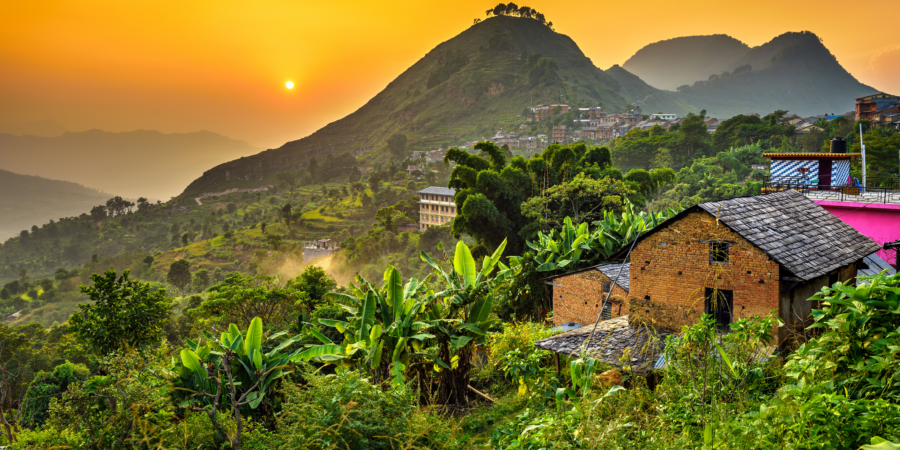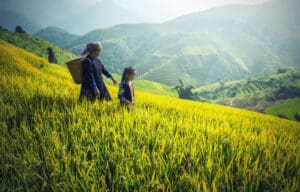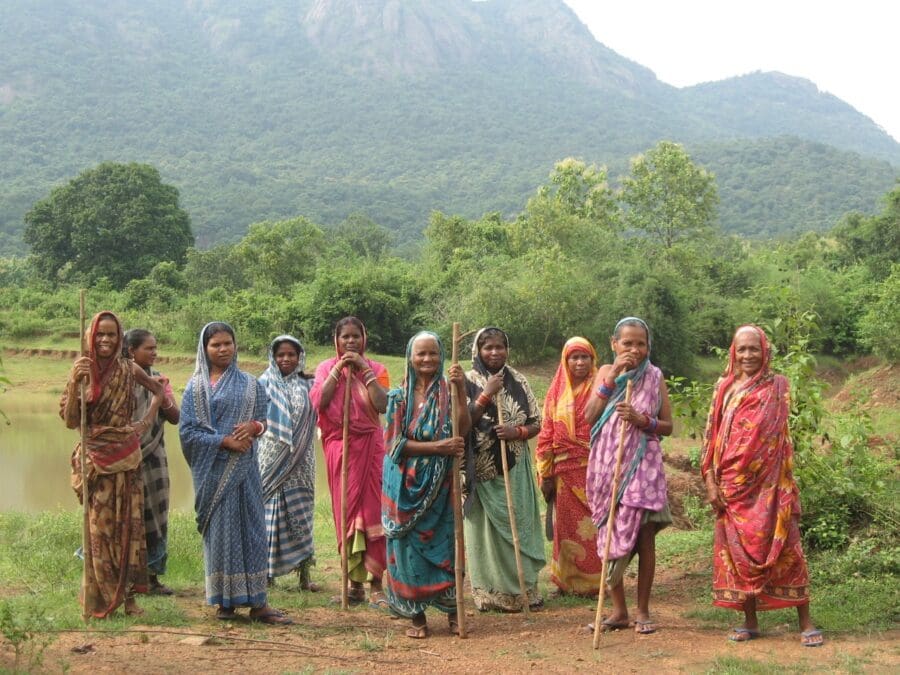Sixteen Indigenous, Afro-descendant, and local community women leaders braved cross-continental travel and double-digit time difference to meet face-to-face for the first time in Panama this March.
Their 3-day workshop marked the first meeting for the Women in Global South Alliance (WiGSA). The women represented 14 countries from Africa, Asia, and Latin America. Thirteen of them joined in person and six via Zoom to create their first strategic plan.
“I see us as a sisterhood, as a group of women who want to protect their communities and provide guidance on governance and advocacy,” says Loretta Alethea Pope, a WiGSA member and executive director of the Foundation for Community Initiatives (FCI) in Liberia.
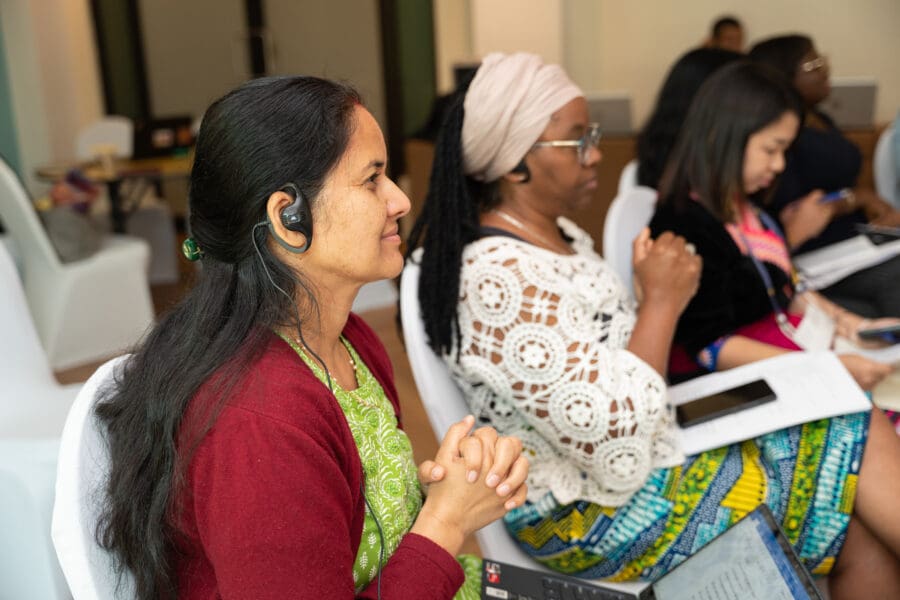
Officially launched at CoP27 in Egypt, WiGSA is the first Alliance of its kind, integrated by grassroots women’s organizations, groups, and associations in the Global South to directly support the role of Indigenous, Afro-descendant, and local community women in achieving climate conservation goals and land tenure rights in Asia, Africa, and Latin America. You can read WiGSA’s Call to Action here.
“Indigenous, Afro descendant, and local community women have been invisible to the international donor community and even to their own communities as agents of change and as political actors who can contribute to policies. That is why we supported the creation of WiGSA and its call to action for donors, describing how they can change the historical gap in funding and supporting women,” said Omaira Bolaños, RRI’s Director for Gender Justice.
Meeting face-to-face for the first time
Since Panama City is home to the Embra and Guna Indigenous Peoples, there was no better way to start than with a ceremony of gratitude to Mother Earth, led by Briceida Iglesias, recognized as a Guna sage and member of the Mesoamerican Alliance of Peoples and Forests (CMLTM).
Following the intimate ceremony, the Alliance members shared their stories and the struggles they face within their own communities. Each wrote their name on a piece of paper and pasted it on a map of the world, which ended up filled with colored labels starting in the Andes of South America and ending in the mountainous north of Chiang Mai, Thailand.
After learning about each other, they jointly identified common problems among the three regions and proposed a new advocacy strategy that will be the Alliance’s roadmap for the coming years.
“I speak on behalf of 8 million Indigenous sowing women when I say that we face complex barriers and discrimination at all levels (social, economic, racial). Our rules, our way of managing our territory, of using our knowledge are not recognized and respected,” said Devi Anggraini of the Indigenous Women’s Association of the Indonesian Archipelago (PEREMPUAN AMAN).

